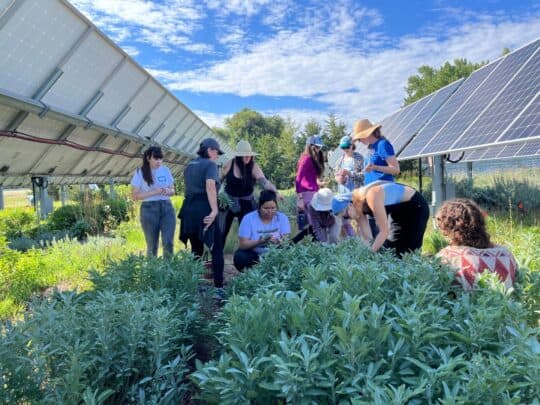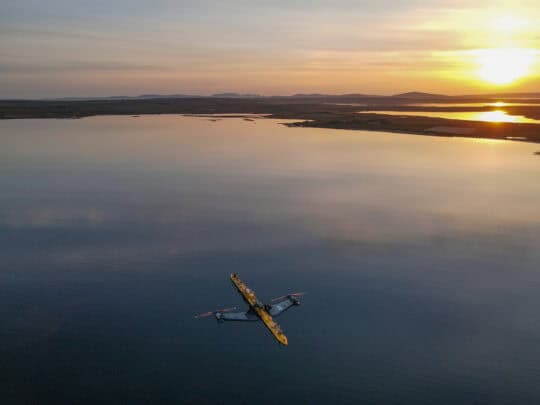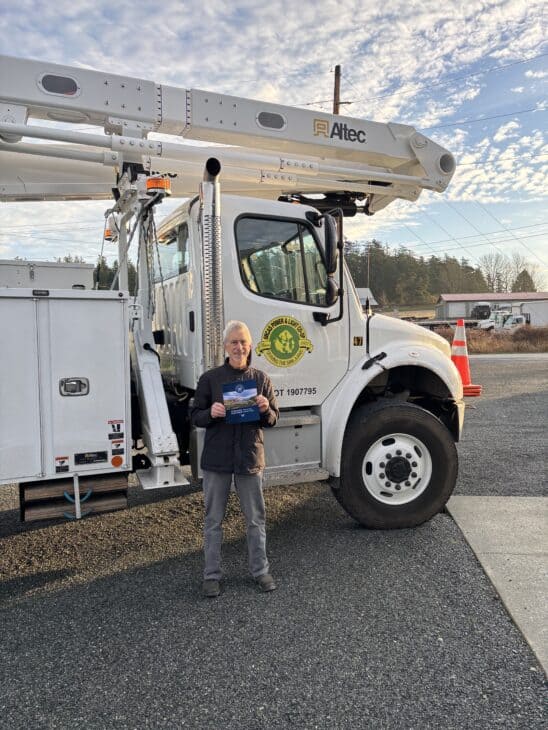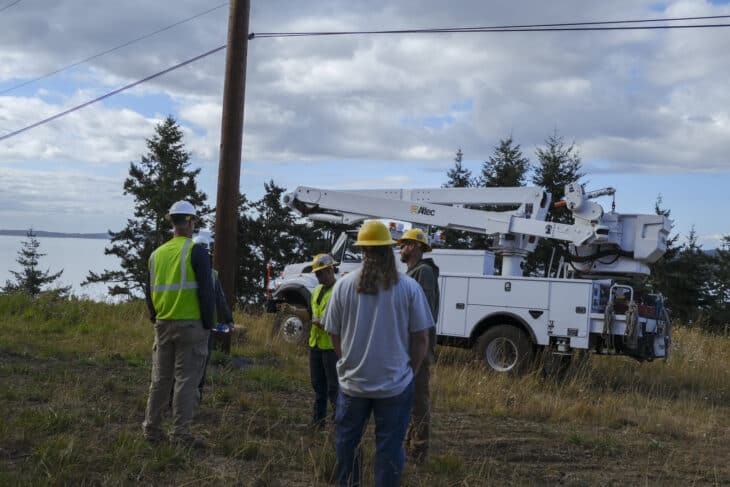Our Energy Future

OPALCO is planning for its energy future of the next 25 years. We need co-op members to get involved.
We want to know:
- Do co-op members want to invest in local, renewable energy solutions like Community Solar Projects?
- Do co-op members want these projects in their neighborhoods?
- What trade-offs will the community make to ensure clean and reliable power now and into the future?
- What sorts of innovative energy generation projects should our communities be exploring? Tidal? Green Hydrogen? Biomass?
Community Meetings
Next month, OPALCO will be hosting a series of renewable energy community meetings to find out what co-op members want for their energy future.
SAN JUAN: September 15 @ 4 pm The Grange
ORCAS: September 16 @ 4 pm Orcas Center Madrona Room
LOPEZ: September 17 @ 4 pm Lopez Island Library
Imagine what it could look like in 2050*
*The OPALCO Team imagined what the possibilities for a sustainable community could look like. This is not intended to represent an actual plan but rather to inspire as we envision our energy future.
- In the late 2020s, energy and food shortages on the mainland deepened islanders’ commitment to become resilient in energy and water use, more self-sufficient in food production, and guided by circular economy principles.
- By 2050 the islands are an inspiring model of sustainability, community resilience, and low impact living.
- The community is interconnected by bike paths and clean, quiet electric transportation, powered by the sun.
- Quality of life is high. Our carbon footprint is low. Life is good.
Farming Reimagined
- Local agrisolar energy helps farmers “farm the sun twice,” for energy and food. This improves farming economics, increases local food and energy supply, and reduces our dependence on the mainland.
- This vibrant farming culture attracts a growing global workforce of climate and digital nomads, who are adapting to the rhythms of a climate-disrupted planet.
Transportation Reimagined
- Transportation had been the largest source of pollution. Now, fossil fuel imports and pollution have plummeted as net-zero personal transportation has benefited from electric mobility, car-sharing, and public transportation.
- The islands are cleaner, quieter, and safer. Most islanders don’t own cars. Town centers are walkable, with pedestrian-only zones and shaded gathering spaces.
- Thanks to funding from Washington’s Climate Commitment Act, free on-demand autonomous EV shuttles reduce the need for car ownership and parking. Bike paths provide a low-tech alternative to driving. Regional public transit offers affordable, dependable, convenient mobility throughout Cascadia.
- This on-demand public transit network transforms tourism, reducing the need for larger car ferries. Most visitors arrive on small, zero-emission, quiet electric passenger ferries, using the county public transit app to schedule pickup at the ferry and arrange transportation to their lodging and island activities.
Local Energy Reimagined
- Islanders used efficiency and conservation measures to ensure they were maximizing their energy usage. They utilized OPALCO and other programs to weatherize their houses, get rid of carbon-based heating systems, and have dispatchable home energy storage systems.
- The islands are powered most of the time by local community microgrids and rooftop solar, supplemented with power from the mainland when needed. Having an abundance of local energy helps protect the community from mainland outages and energy price surges.
- Forests are managed wisely. Dead wood and waste are gathered to produce biochar and biomass generation of electricity.
Affordable Housing Reimagined
- The County’s energy, water, food, and affordable housing priority permitting program incentivizes low- and moderate-income housing and local renewable energy microgrid hubs. This investment in affordable housing brings another benefit: a thriving workforce of skilled tradespeople who once struggled to live where they worked.
- Land that was once too expensive and out of reach for hopeful farmers became centers of innovation, incorporating utility-scale agrisolar microgrids, farming, food processing and preservation, affordable worker housing, and repair-recycle-reuse hubs.
- New housing incorporates best practices in energy efficiency. Shade trees provide passive cooling in the summer and passive heating in the winter. Water catchment and gray water systems fortify us as extended droughts and wildfires challenge us in spring, summer, and fall.

Earth Friendly 2050
- By 2050, the global population has peaked, and the world has shifted from a fossil-fueled economy to one that is primarily powered by clean, renewable energy.
- Extraction of minerals for renewable energy generation and storage is a small fraction compared to fossil fuels, and the world has become very good at recycling those minerals for reuse.
- Pollution has peaked and is declining. Wildlife is rebounding.
- Resilience and prosperity are natural partners in building communities that can thrive within the limits of our finite, precious planet.
Come to the OPALCO community meetings to tell us what you imagine for our energy future and find ways to support renewable energy.



